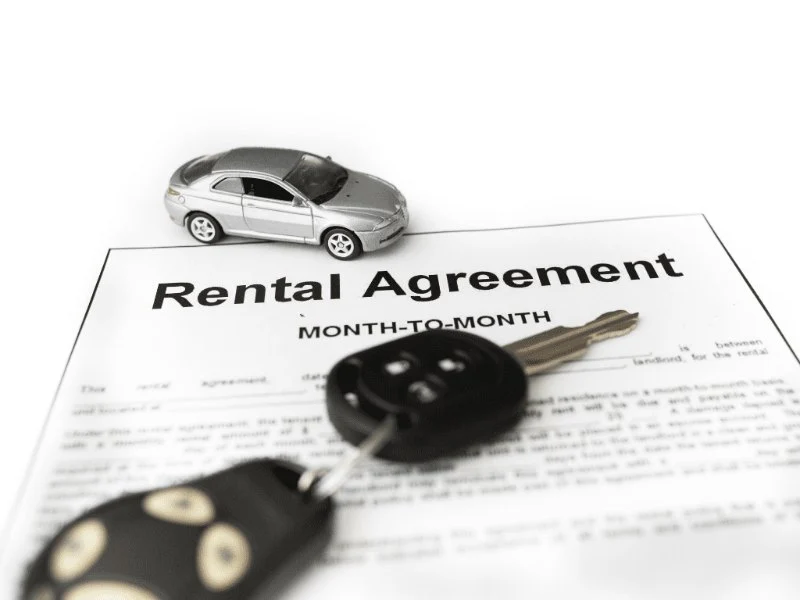
Understanding the Fine Print: Rental Car Contracts Explained Simply
- 1- Why Understanding Rental Car Contracts Matters
- 2- Common Terms to Look for in Rental Car Contracts
- 3- How to Navigate the Fine Print
- 4- What to Do If You Don’t Understand a Term
- 5- When to Call for Help
Renting a car can be an exciting part of your travel plans, but before you sign the agreement, it’s essential to understand the rental car contract. The fine print can include terms and conditions that affect your costs, insurance coverage, and even the quality of your experience. In this guide, we’ll break down the key elements of rental car contracts and show you how to navigate them with ease.

Hertz Car Rental - Saint Paul - E Kellogg Boulevard
Saint PaulRamsey CountyMinnesota
240 E Kellogg Blvd Suite 90, St Paul, MN 55101, USA
1- Why Understanding Rental Car Contracts Matters
Rental car contracts are not just legal documents; they determine how much you’ll pay, what’s covered in the event of an accident, and your overall experience with the rental company. Misunderstanding any clause can lead to unexpected charges, a lack of insurance coverage, or difficulty with your rental. Knowing what’s included and excluded can save you time, money, and frustration during your trip.
2- Common Terms to Look for in Rental Car Contracts
Rental car agreements can be lengthy and complex, but here are some of the most important terms you should pay close attention to:
1. Insurance Coverage
Insurance is a crucial aspect of renting a car. Most rental companies will offer you several types of coverage, such as Collision Damage Waiver (CDW), Liability Insurance, and Personal Accident Insurance (PAI). Make sure you understand what’s covered and whether your personal car insurance or credit card can provide the same protection.
2. Fuel Policy
Different companies have different fuel policies. Some require you to return the car with a full tank of gas, while others may offer a pre-paid fuel option. Be aware of how the company handles fuel charges to avoid paying extra for unneeded gas.
3. Mileage Limits
Many car rental agreements come with mileage limits, especially for economy cars. Be sure to check the terms to see if you’re allowed unlimited mileage or if you’ll incur charges after a certain number of miles. If you plan on driving long distances, look for an option that offers unlimited mileage.
4. Additional Fees
Watch out for hidden fees that may not be obvious when you first book your rental. These can include charges for GPS, car seats, additional drivers, one-way rentals, and late returns. Ensure that you fully understand these charges before signing the contract to avoid surprises later on.
3- How to Navigate the Fine Print
The fine print in rental car contracts can seem overwhelming, but with a few tips, you can easily navigate it:
1. Read Every Section
Take the time to read through each section of the contract. Even though it may seem long and tedious, understanding the small details will help you avoid costly mistakes. If there’s any section that you don’t understand, ask the rental agent for clarification.
2. Look for Exclusions
Many rental car contracts will include exclusions, such as damage to tires, undercarriage, or windshield. Make sure you know what’s excluded from your coverage to avoid potential liability in case of an accident.
3. Check for Extra Charges
Before signing, confirm that the rate you were quoted includes all taxes, fees, and surcharges. These extra costs can add up quickly and might not be included in the initial price displayed online. Always verify the total cost of the rental.
4- What to Do If You Don’t Understand a Term
If there’s any part of the rental agreement that you don’t understand, don’t hesitate to ask the rental agent for clarification. It’s better to ask questions upfront than to deal with surprises later. You can also request a copy of the agreement to review at your leisure before signing. If you’re unsure about any terms, consider seeking advice from a legal professional or reading online reviews of the rental company.
5- When to Call for Help
If you encounter issues with your rental contract or have a dispute about charges, it’s time to reach out for help. Here’s when you should call customer service or a lawyer:
1. Discrepancies in Charges
If you’re charged more than the price quoted or you find additional, unexplained fees, contact the rental company immediately. Keep a copy of your agreement and receipts as proof.
2. Issues with Insurance Claims
If there’s a problem with your insurance coverage, such as an accident or damage that’s not covered by the rental company, call for assistance to resolve the issue. Understanding your insurance coverage is crucial before signing the contract.
For help with any aspect of your rental car needs, visit LifeStar Car Rental for the best deals and services available!








 Enterprise Rent-A-Car4.0 (641 reviews)
Enterprise Rent-A-Car4.0 (641 reviews) Car X Rental4.0 (31 reviews)
Car X Rental4.0 (31 reviews) Thrifty Car Rental - Philadelphia International Airport2.0 (1460 reviews)
Thrifty Car Rental - Philadelphia International Airport2.0 (1460 reviews) Alamo Rent A Car4.0 (1056 reviews)
Alamo Rent A Car4.0 (1056 reviews) NextCar4.0 (104 reviews)
NextCar4.0 (104 reviews) Enterprise Rent-A-Car4.0 (316 reviews)
Enterprise Rent-A-Car4.0 (316 reviews) Why Some Rental Cars Have GPS Trackers and What It Means for You
Why Some Rental Cars Have GPS Trackers and What It Means for You What U.S. Drivers Should Know About Insurance Deductibles on Rentals
What U.S. Drivers Should Know About Insurance Deductibles on Rentals What Rental Car Companies Don’t Tell You About Insurance Coverage
What Rental Car Companies Don’t Tell You About Insurance Coverage How to Avoid Paying for Optional Equipment You Don’t Need in a Rental Car
How to Avoid Paying for Optional Equipment You Don’t Need in a Rental Car What Rental Car Companies Don’t Tell You About Insurance Coverage
What Rental Car Companies Don’t Tell You About Insurance Coverage How to Avoid Premium Pricing When Visiting Popular Beach Destinations and Renting Cars
How to Avoid Premium Pricing When Visiting Popular Beach Destinations and Renting Cars